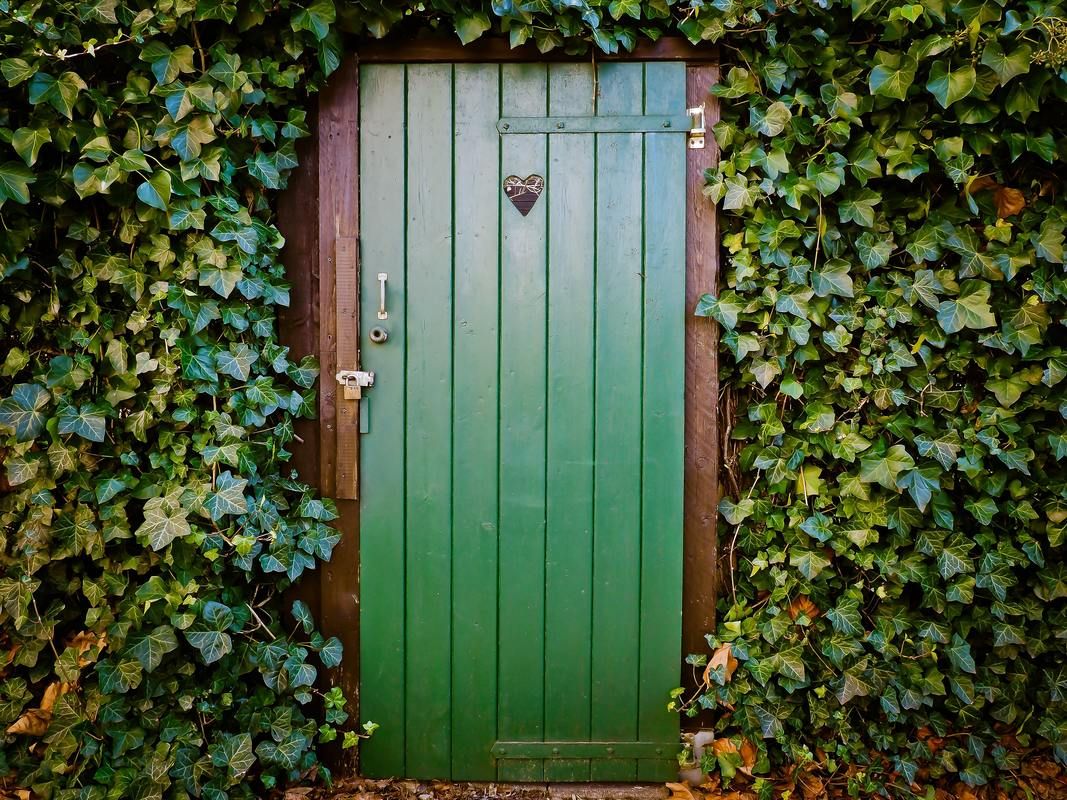And then I noticed the crumbs all over the kitchen island that I was using as my writing desk.
So, I got up and cleaned up the breakfast crumbs.
When I returned the sponge to the sink, I noticed all the sludge in the drain that hadn’t been cleaned last night, so I brought the sink strainer over to the trash and dumped it. Ick.
Of course, the trash was overflowing, so I promptly pulled the bag out and tied it up. I replaced it with a new bag and walked the old bag outside.
On the way to the trash bin, I spotted some random bathing suit pieces left outside, so I picked them up and draped them over the patio furniture to dry.
I guiltily walked past the wilting petunias to dispose of the trash bag, but stopped and picked up the watering can on my way back. I don’t want to leave behind dead flowers, after all.
It was that last thought that stopped me. What would happen if I did leave behind dead flowers?
We are moving out in less than two weeks and the family whose house we have rented is coming back.
The answer, nothing. Nothing would happen. Our landlords would move back in, say or think, “too bad about these flowers” and replace them. Or maybe even not get around to it.
And that would be the end of it.
The coach in me is compelled to ask, “what’s important about not leaving behind dead flowers?”
So, I sit with that question for a minute, and I become aware of how important it is to me that I return the house to its owners in an impeccable state. In my mind, the state in which they find their house reflects on me.
I want them to come home and find everything in perfect order, well tended while they were gone and in tip top condition.
Hhmm. My perfectionistic tendencies are making themselves known again. As we move closer to moving day, I see myself moving at a quicker pace, keeping exhaustive lists in my mind, sticking to productive-mode, getting a bit more rigid in my expectations for myself and my family.
Perhaps it is time for a time out. Similar to the technology time outs I have given myself, this one will be a cleaning and ordering time out. I am quite sure, much like technology, I am using cleaning and organizing as coping mechanisms and a bid for control.
I can control how tidy the kitchen is. I can’t so much control how smoothly it goes leaving here and moving back to the U.S.
Trying to cope with a big transition, I cover up my feelings and keep busy. I don’t want to deal with my feelings about moving, saying goodbye to the community we’ve created here over the past year, not knowing when we will come back.
Sitting with that awareness is definitely less comfortable than bee-lining from task to task, keeping busy with my to-do list. The reality is I will be better served if I take some time to do some inner housekeeping, noticing and being with the feelings that are present with this transition.
Do the to-dos still need to get done? Well, yes. But when I slow down enough to watch myself, I realize that the house won’t be any more impeccable if I move from one thing to another without pausing, if I nag my kids incessantly about putting their shoes away, if I forget to actually sit down and write.
It’s likely that it’s a choice between a decently cleaned house full of tense people and a decently cleaned house full of less tense people.
Housekeeping isn’t always about keeping house.
What does inner housekeeping mean to you? What might be waiting for you on the inside if you take a minute to notice what is there?
| Jessica Curtis is a professional coach who helps people cultivate intention and live from a place of meaning and authenticity. If you think you could benefit from working with Jessica or want to invite her to work with your group, reach out to start a conversation. |



 RSS Feed
RSS Feed

